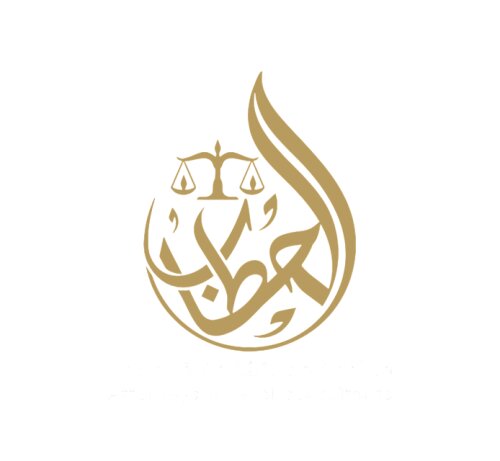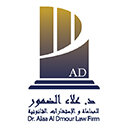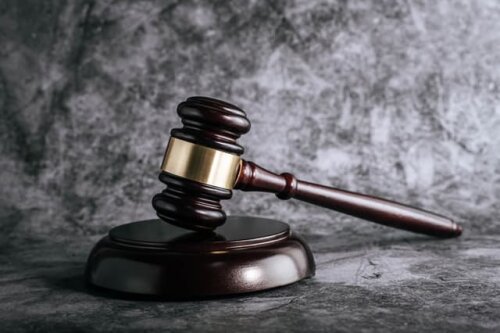Best Art & Cultural Property Law Lawyers in Amman
Share your needs with us, get contacted by law firms.
Free. Takes 2 min.
List of the best lawyers in Amman, Hashemite Kingdom of Jordan
About Art & Cultural Property Law in Amman, Hashemite Kingdom of Jordan
Art & Cultural Property Law in Amman, Hashemite Kingdom of Jordan, encompasses a variety of legal issues related to the protection, ownership, and trade of art and cultural artifacts. This area of law is crucial to preserving Jordan's rich cultural heritage, which includes historical sites, archaeological finds, and traditional arts. The law aims to protect these assets from illegal excavation, sales, and export, ensuring that they are preserved for future generations. Additionally, international treaties, such as UNESCO conventions, play a significant role in shaping the legal landscape surrounding cultural property in Jordan.
Why You May Need a Lawyer
There are numerous situations where individuals or institutions may require legal assistance in the field of Art & Cultural Property Law in Amman. Some common scenarios include:
- Acquiring or selling art or cultural artifacts, both domestically and internationally.
- Disputes over ownership or provenance of art and artifacts.
- Compliance with local and international laws when exporting or importing cultural property.
- Protection of intellectual property rights related to artworks.
- Issues related to the illegal excavation or trade of archaeological finds.
- Legal advice on the restoration or conservation of cultural properties.
In these situations, a lawyer specializing in Art & Cultural Property Law can help navigate the complex legal framework and ensure compliance with relevant laws and treaties.
Local Laws Overview
In Jordan, the legal framework governing art and cultural property is influenced by both national legislation and international agreements. Key aspects of these laws include:
- The Jordanian Antiquities Law regulates the excavation, protection, and trade of historical artifacts. It sets guidelines for the registration, conservation, and export of cultural property.
- The Ministry of Tourism and Antiquities is the primary governmental body responsible for implementing policies and regulations concerning cultural heritage protection.
- International treaties, such as the UNESCO Convention on the Means of Prohibiting and Preventing the Illicit Import, Export, and Transfer of Ownership of Cultural Property, also play a crucial role in shaping national policies.
- Specific regulations exist to prevent the illegal trade of cultural goods and ensure their safe return to Jordan if unlawfully removed.
- Laws protecting intellectual property rights for artists and creators are also relevant to this field.
Frequently Asked Questions
What is considered a cultural property under Jordanian law?
Cultural property includes any item that holds historical, artistic, or scientific significance, such as archaeological artifacts, historical buildings, artworks, and manuscripts.
Can I export cultural artifacts from Jordan?
Exporting cultural artifacts from Jordan is heavily regulated. Permission must be obtained from the Ministry of Tourism and Antiquities, and certain high-value or historically significant items may be banned from export altogether.
What should I do if I find an antiquity on my property?
Any discoveries of antiquities must be reported immediately to the Department of Antiquities. Unauthorized excavation or sale of such items is illegal.
How are disputes over the ownership of art resolved?
Ownership disputes can be resolved legally through documentation of provenance, which provides a history of ownership and authenticity of the art piece in question.
Are there any exemptions for private collectors?
Private collectors are subject to the same laws as other entities concerning the trade and ownership of cultural property, though there may be specific provisions for items legally acquired before certain regulations were enacted.
What international laws affect art and cultural property in Jordan?
International treaties, such as those by UNESCO, provide guidelines for protecting cultural property and preventing its illicit trade. Jordan is an active participant in these international agreements.
How can I verify the authenticity of an artwork before purchase?
Authenticity can be verified through provenance records, expert assessments, and sometimes scientific analysis. It is crucial to work with reputable dealers and seek legal advice when needed.
Is it illegal to create replicas of cultural artifacts?
Creating replicas is not illegal, but they must be clearly marked or labeled as replicas to avoid confusion with authentic artifacts and prevent fraud.
What role does the Ministry of Tourism and Antiquities play?
This ministry is responsible for overseeing the preservation, protection, and promotion of Jordan's cultural heritage. It enforces regulations and handles permits for the trade and export of cultural property.
How do I register an artwork or cultural artifact?
Registration involves documenting the item's details with the Department of Antiquities. This process is essential for legal ownership and to facilitate potential future transactions.
Additional Resources
For those seeking more information on Art & Cultural Property Law in Jordan, the following resources may be helpful:
- The Ministry of Tourism and Antiquities is the central authority for cultural property regulations.
- UNESCO's resources provide guidance on international standards and treaties concerning cultural property.
- The Jordan National Gallery of Fine Arts can be a valuable resource for those interested in artworks and artists.
- The Museum Association of Jordan offers support and collaboration opportunities for museum professionals.
Next Steps
If you find yourself needing legal assistance in Art & Cultural Property Law in Amman, it is advisable to consult a lawyer specializing in this field. They can provide personalized guidance and ensure compliance with both local and international laws. Begin by gathering all relevant documentation related to your situation, such as proof of ownership, provenance records, and any correspondence related to the matter at hand. This information will be invaluable during your legal consultation and in navigating the complexities of Art & Cultural Property Law in Jordan.
Lawzana helps you find the best lawyers and law firms in Amman through a curated and pre-screened list of qualified legal professionals. Our platform offers rankings and detailed profiles of attorneys and law firms, allowing you to compare based on practice areas, including Art & Cultural Property Law, experience, and client feedback.
Each profile includes a description of the firm's areas of practice, client reviews, team members and partners, year of establishment, spoken languages, office locations, contact information, social media presence, and any published articles or resources. Most firms on our platform speak English and are experienced in both local and international legal matters.
Get a quote from top-rated law firms in Amman, Hashemite Kingdom of Jordan — quickly, securely, and without unnecessary hassle.
Disclaimer:
The information provided on this page is for general informational purposes only and does not constitute legal advice. While we strive to ensure the accuracy and relevance of the content, legal information may change over time, and interpretations of the law can vary. You should always consult with a qualified legal professional for advice specific to your situation.
We disclaim all liability for actions taken or not taken based on the content of this page. If you believe any information is incorrect or outdated, please contact us, and we will review and update it where appropriate.














